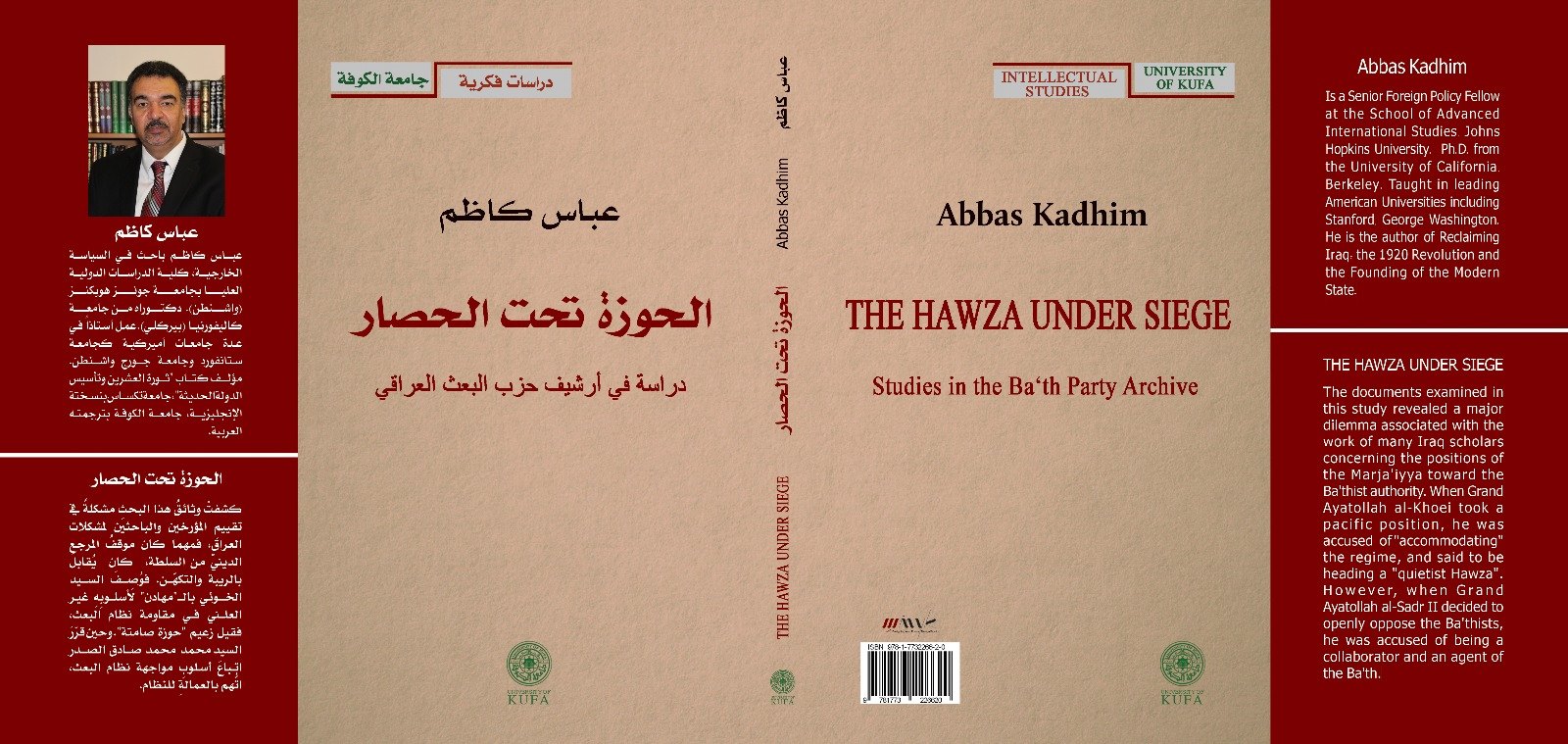The Middle East Institute (MEI) is pleased to host a conversation with Abbas Kadhim, the author of Reclaiming Iraq: The 1920 Revolution and the Founding of the Modern State, senior adviser to the UNESCO Chair at Kufa University in Iraq and former senior fellow at Johns Hopkins SAIS Foreign Policy Institute.
In his book The Hawza Under Siege: Studies in the Ba’ath Party Archive, Kadhim delves into formerly highly-classified documents surrounding the positions of the Marja'iya toward the Ba'athist authorities. The documents correct the record on the history of Shi'a activism and resistance to the Baathist regime, and reveal new information about how the Saddam Hussein regime viewed the Hawza, the relations between the regime and Ayatollah Al Khoei, and the role Ayatollah Muhammad Sadiq Al Sadr played through his Friday prayers at the Grand Mosque in Kufa 1998-1999 in giving birth to a new form of Shi'a activism in Iraq.
How have these historical dynamics influenced the evolution of the political opposition to the regime of Saddam Hussein? How they have impacted the Marja'iya behavior and positions since 2003? How they affected relations among different Iraqi political entities?
MEI’s Director of the Program on Conflict Resolution and Track II Dialogues, Randa Slim, will moderate this discussion.
Speakers biography:
Abbas Kadhim
Non-resident senior fellow, Foreign Policy Institute, John Hopkins University (SAIS)
Abbas Kadhim is senior fellow at the Foreign Policy Institute, School of Advanced International Studies, Johns Hopkins University and senior adviser to the UNESCO shair at Kufa University (Iraq). His research interests focus on Iraq, Iran, and Gulf Arab States. Between 2005 and 2013, Kadhim was an assistant professor of National Security Affairs/Middle East Studies at the Naval Postgraduate School in Monterey, California, and a visiting professor at Stanford University. Kadhim held a senior government affairs position at the Iraqi Embassy in Washington, DC from 2013 to 2014. Among his books are: Reclaiming Iraq: the 1920 Revolution and the Founding of the Modern State, Austin: University of Texas Press & Governance in the Middle East and North Africa, London: Routledge. His current research project is focusing on rebuilding Iraq’s political economy.
Randa Slim, moderator
Director, program on Conflict Resolution and Track II Dialogues, MEI
Randa Slim is director of Conflict Resolution and Track II Dialogues program at the Middle East Institute and a non-resident fellow at the Johns Hopkins University School of Advanced and International Studies (SAIS) Foreign Policy Institute. A former vice president of the International Institute for Sustained Dialogue, Slim has been a senior program advisor at the Rockefeller Brothers Fund, a guest scholar at the United States Institute of Peace, a program director at Resolve, Inc, and a program officer at the Kettering Foundation. A long-term practitioner of Track II dialogue and peace-building processes in the Middle East and Central Asia, she is the author of several studies, book chapters, and articles on conflict management, post-conflict peace-building, and Middle East politics.












